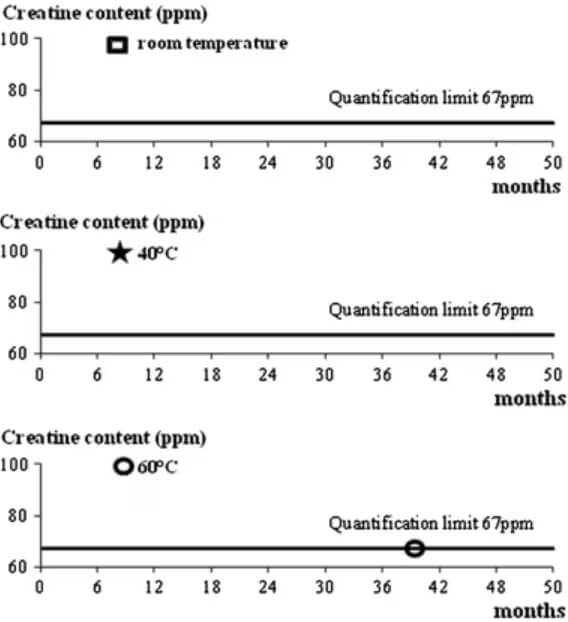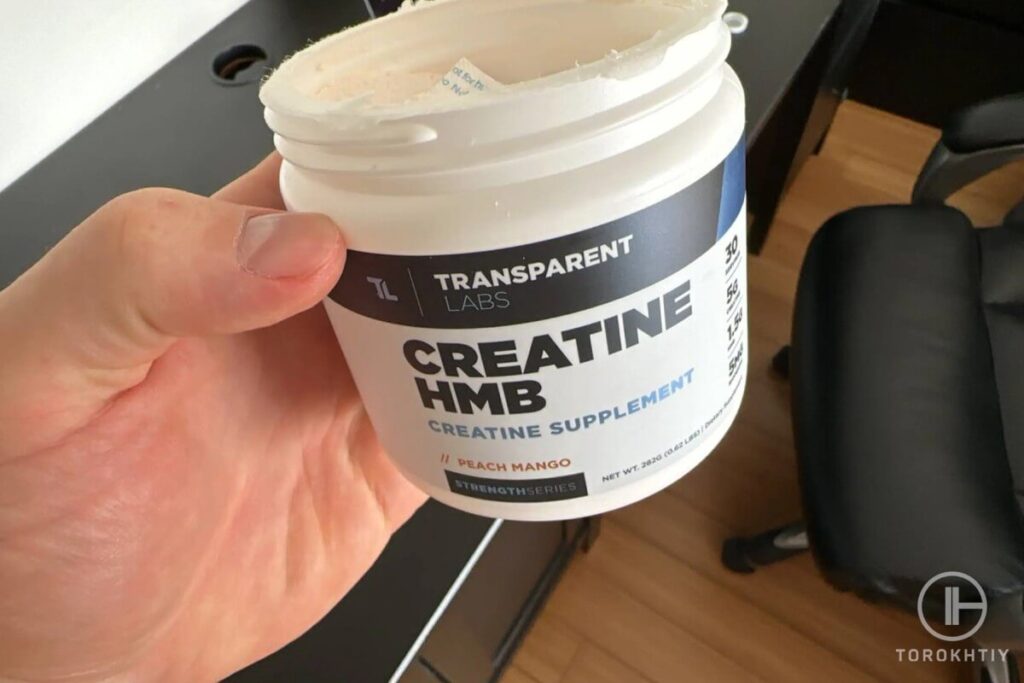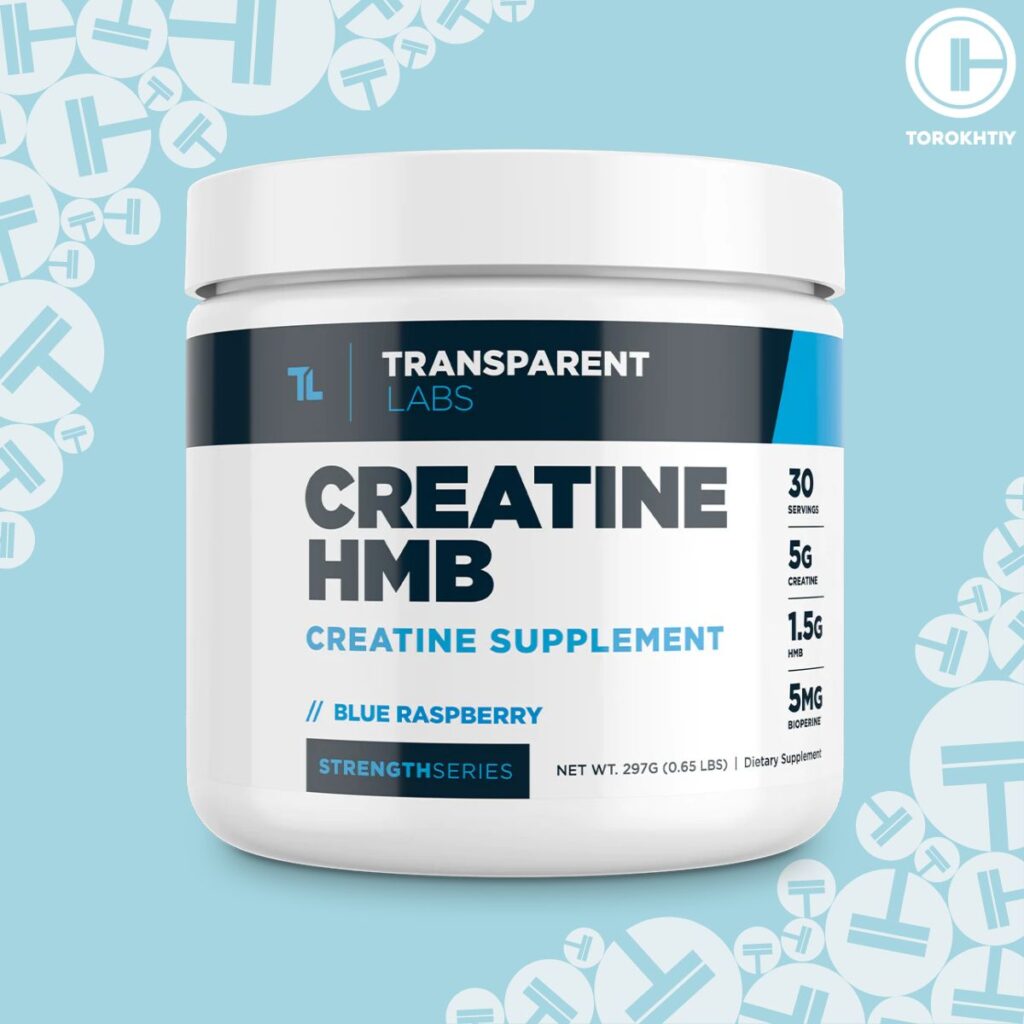Does Creatine Expire? How Long Does It Last
Author:
Unlock your full potential by engaging with our experts and community! Have questions about your fitness journey or looking for expert advice on weightlifting techniques? Don’t hesitate — leave a comment below and Jacek Szymanowski will provide a personalized answer and insights to help you reach your goals.
Torokhtiy is reader-supported. Some links are affiliate links, and we may earn a commission at no extra cost to you. See our disclosure page for details.
You’re about to hit the gym and just took a serving of creatine to give yourself a power boost for an awesome workout session. But, you just realized and checked the expiry date: it’s past the expiry date!
Hold on, nothing to worry about! We’re here to tell you all about expired creatine!
Does Creatine Expire? Yes! Like all compounds, creatine will expire as well. Expired creatine breaks down into creatinine, a waste product, which means that the creatine isn’t creatine anymore. So if you consume it, even though it’s not harmful, you won’t notice the desired benefits.

Does Creatine Expire?
Creatine is among the most popular and widely used supplements in the world. But, what happens when the creatine you have is nearing or past its expiry date? Can creatine go bad?
Most creatine supplements actually come with 2 to 3 years of expiry from its production date. Depending on the storage conditions and temperature, most creatine supplements don’t go bad any time soon after they expire.
If stored properly, believe it or not, creatine monohydrate powder can last for 4 years without breaking down into its waste product, (Fig.3). Though you might be wondering, does creatine go bad after this point?

Well, the creatine might start to lose potency and start breaking down into creatinine, or at least the process might start. This causes the supplement to lose its beneficial properties, though it won’t be bad for you even if you take it.
Important: Please note that we’re in no way condoning you to use expired supplements!
What Is The Shelf Life Of Creatine And What Affects Its Quality?
The first thing to clear here is that there is a difference between the terms ‘shelf life’ and ‘expiry date’.
These are given to various products to let the consumer know how long the product can sit on the shelf. Or, what is the time limit within which they should consume the said product.
To give you an example, if a creatine tub has crossed its shelf date, that doesn’t mean the product inside has expired or gone bad. This is especially true for creatine monohydrate powder, which is an exceptionally stable compound and can last for years on the shelf without degradation, given the right storage conditions of course.
1. Creatine Shelf Life
In a solid powdered form, creatine monohydrate shows no signs of degradation at room temperatures and even at a little bit high temperatures over a period of 44 months.
Unlike diet supplements and food products that don’t have a long shelf life and require either to be sold and used quickly or frozen, creatine is a chemical. Being a chemical compound the shelf life of creatine can last a long time (almost 4 years!) without degradation.
So if you’re wondering how long does creatine last on the shelf? Well the answer is: a really long time!

2. What Effects Creatine Quality?
The two main factors that affect the quality of creatine and speed up the degradation process are high temperature and when creatine is dissolved in a solution.
Case 1: Temperature
Even when the creatine is in solid form, it remains stable for more than 4 years unless it is subjected to high temperatures of 60 Celsius. At these temperatures the creatine starts to break down into creatinine after 3 years.
The shelf life of creatine is reduced if it is stored in an environment that is way above room temperature.
Case 2: Mixed in a Solution & Exposed to Moisture
Once creatine monohydrate is exposed to moisture or dissolved in a solution (regardless of its concentration), it will degrade much faster within hours. This is due to intramolecular cyclization of the creatine molecules.
However, it is important to note that the rate of degradation is dependent on the pH levels of the liquid. The lower the pH levels of the liquid solution, the faster the creatine turns into creatinine. Add high temperature into the mix and the process will become even faster.
For example, when creatine is dissolved in a liquid that has neutral pH(6.5 – 7.5), like pure water, the creatine remains stable for a couple of days before it starts to turn into its waste product. This solution can remain stable even longer if stored in the refrigerator.
On the other hand, when creatine is dissolved in a low pH (3.5 – 4.5) solution, it starts to turn into creatinine within a few hours time.
So, if you’re looking to prevent your creatine monohydrate powder from losing its potency, storing it away from moisture is the way to go to prolong its quality!

3. Stability In Solid Form
Creatine monohydrate in solid form is the most stable as it undergoes no degeneration into its waste product. This means that as long as the temperatures are not too high and the creatine is stored in a cool and dry location, you can use it for as long as four years.
So, what happens when creatine expires? The answer is simple: even though the label might say that it will expire in 2 to 3 years, scientific evidence shows that it is safe to use the creatine for as long as four years after its production date.
4. Stability In Aqueous Solution
Unlike creatine’s solid state form, when it is mixed into a solution, its stability undergoes drastic degradation. This is because the compound undergoes an intramolecular cyclization when dissolved in an aqueous solution. However, it’s important to note that creatine undergoes this process faster as the pH levels of the liquid get lower.
Another factor that affects creatine breakdown into creatinine is high temperature. If you have a lower pH and high temperature, the breakdown will be much faster. This means that if you wish to keep your creatine from turning into its waste product, you should store it in a dry and cool place.
5. What If It Gets Clumpy?
A lot of people wonder: is clumpy creatine bad? Know that just because the creatine is clumpy, it does not mean that it’s expired or gone bad. Chances are that it most probably got some moisture exposure, but it’s absolutely fine to take it.
Depending on how much moisture got in, the clumpy creatine might have diminished into creatinine, losing some of its potency. This usually happens when you either forget to close the tub tightly or wash the scoop and put it back inside the tub without properly drying it.
Note: Always use a dry scoop/spoon to take out the creatine from its container to prevent exposure to moisture.

6. Creatine Types Considerations
Creatine is such a popular supplement that it is available at least in six different types. These are:
- Creatine Ethyl Ester
- Creatine HCL
- Creatine Monohydrate (most popular and studied!)
- Buffered Creatine
- Creatine Magnesium Chelate
- Liquid Creatine
Of these six, the most commonly used is creatine monohydrate. This is because not only is it readily available in powdered form, this makes it the most stable with the longest shelf life.
As mentioned earlier, creatine gets less stable when dissolved in solutions. For example, creatine ethyl ester (CEE) offers all the benefits of creatine monohydrate (CM), minus the stability and long shelf life. In fact, it is easier and faster to absorb with almost no side effects of bloating.
Because the Ethyl Ester is an organic compound and when this ethyl group is added with creatine, the degradation rate is higher as compared to creatine monohydrate.
Additionally, comparing all the different types of creatine, creatine monohydrate has the most active principle creatine. The only advantage the creatine salts and esters have over CM is that they are much more soluble.

How To Store Creatine?
The biggest culprit that can ruin your creatine supplement is moisture. Also, with moisture there are chances of bacteria and mold formation as well. This may result in your creatine supplement going bad before its expiration date.
Here are 6 ways to ensure that your creatine stays cool, dry, and away from moisture and high temperatures:
- Make sure the creatine is stored in an airtight container
- Do not remove the silica pad from the tub
- Close the lid as tightly as possible after each use
- Never keep the container in direct sunlight
- Keep it away from the cooking stove in the kitchen
- Store the creatine tub in a cupboard
These storage tips can prevent your creatine supplements from degradation, allowing them retain their potency for as long as 4 years!
Can You Use Creatine After The Expiration Date?
People do wonder can you take expired creatine?
As we have discussed before, you can use creatine monohydrate after the expiration date, as long as it has been stored in a cool and dry space. The thing to look out for is the production date as creatine monohydrate does not degrade even after 4 years of proper storage.
The big question a lot of users have is how to tell if creatine is expired?
There are 4 signs you should look out for when your creatine supplement is nearing expiry or has expired such as:
- Change in color
- Foul taste
- Bad odor
- Clumpiness
Chances are that if your supplement is showing any of these signs before or near its expiry date, you did not follow the storage tips properly.
In any case, clumpiness does not necessarily mean that the creatine has gone bad. Most probably it got exposed to some moisture, which may result in the creatine losing some of its potency. It is still safe to consume though.
However, do keep a look out for any irregularities. If you see the creatine change color, a change in taste and smell then it would be better to get yourself a new tub of the supplement. This is usually a sign of bacteria developing so better to go for a new one.
creatine dosage calculator
Loading Phase:
Maintenance Phase:
The Creatine We Recommend
Transparent Labs Creatine HMB
- Form: Powder
- Servings per Container: 60
- Type: Creatine Monohydrate
- Suitable for Vegans: Yes
- Other Ingredients: HMB (beta-Hydroxy-beta-Methylbutyrate), Bioperine
- Price per Serving (9.9g): ~$1.5
- Company Founded: 2011
- Recommended by Athletes: Bennett Jackson
StrengthSeries Creatine HMB by Transparent Labs is among the best creatine supplements out there. A single scoop of 9.9g contains pure creatine monohydrate with HMB and Bioperine, resulting in an increase in power and strength for your upcoming training session while also enhancing the absorption of the nutrients in your body.
You also get 12.5 mcg of Vitamin D per serving to reduce fatigue, improve mental sharpness and support muscle growth as it aids in regulating phosphorus and calcium throughout the body.

The supplement comes with a vast choice of flavors with an unflavored option as well. You get a smooth texture when mixing with any liquids, allowing it to blend easily with a drink of your choice.
It has been tested by 3rd party laboratories and has no harmful ingredients or processing aids. These especially include substances that are harmful for everyone, such as heavy metals. But if the manufacturer has independent testing for impurities, this is an additional guarantee of safety.
It is vegan so it caters to a wider range of dietary preferences. Its ability to increase lean muscle mass and improve performance in high-intensity exercise makes it a valuable supplement for both athletes and fitness enthusiasts.
Positives:
Could be better:
FAQ
What Happens If You Take Expired Creatine?
Even if you take creatine that has gone past its expiry date, it won’t cause any adverse side effects. It degrades into creatinine which is a waste product and it will pass through your system without offering any of its benefits.
However, if you notice a foul odor, taste and a change in the color of the creatine supplement, it would be best to discard it and buy a new tub.
How Long Is Creatine Safe For?
If stored airtight and in a properly cool and dry place, creatine supplements are safe for about 4 years from their production date. They won’t undergo degradation and will be safe to consume for years. Even after the creatine expiration date, you can safely use them for a year or two.
Can Creatine Cause Kidney Stones?
People with a history of kidney stones are required to ask their professional health advisor before starting creatine supplementation. However, there is no scientific evidence that regularly taking creatine causes kidney stones.
Does Creatine Monohydrate Expire?
Well, you may also ask: do creatine pills expire? Yes, they do expire but if you follow the storing tips we have mentioned above, you can still use the creatine monohydrate after its expiry date.
Conclusion
Creatine is one of the most stable supplements available today. This is especially true for creatine monohydrate as it has a much longer shelf life and can be safely consumed way past its expiry date.
As long as it is stored properly, it does not degrade into its waste product creatinine, and can be safely consumed for up to 4 years from its production date.
However, if you notice a foul odor, taste and a change in the color of the creatine supplement, it would be best to discard it and buy a new tub. Like the one we recommend, StrengthSeries Creatine HMB by Transparent Labs.
If you have any questions or thoughts to share about creatine and any other supplements, feel free to ask in the comment section below. Or if you have used the above mentioned supplement, share your experiences in the comment section as well!
Also read:
- Types of Creatine
- How Much Creatine Hcl Should I Take
- Why Is Creatine So Expensive
- Is Creatine Good for Cutting
- Can You Take Creatine Without Working Out
- Does Creatine Make You Stronger
- Glutamine vs Creatine
- Creatine Nitrate or Creatine Monohydrate
- Creatine or Beta Alanine
- Electrolyte Supplements Guide
References:
- Ralf Jäger, “Analysis of the efficacy, safety, and regulatory status of novel forms of creatine”, Springer, https://link.springer.com/article/10.1007/s00726-011-0874-6, (Accessed 22 March 2011)
- Ralf Jäger, “Analysis of the efficacy, safety, and regulatory status of novel forms of creatine”, NCBI, https://www.ncbi.nlm.nih.gov/pmc/articles/PMC3080578/ (Accessed 2011)
- Somnath Singh, “Creatine Monohydrate”, ScienceDirect, https://www.sciencedirect.com/science/article/abs/pii/S1871512509340017 (Accessed 2009)
- Richard B. Kreider, “Bioavailability, Efficacy, Safety, and Regulatory Status of Creatine and Related Compounds”, MDPI, https://www.mdpi.com/2072-6643/14/5/1035# (Accessed 28 February 2022)
- H F DeLuca, “The metabolism and functions of vitamin D”, NCBI, https://pubmed.ncbi.nlm.nih.gov/3012979/ (Accessed 1986)
- Jose Antonio, “Common questions and misconceptions about creatine supplementation”, Biomedcentral, https://jissn.biomedcentral.com/articles/10.1186/s12970-021-00412-w (Accessed 08 February 2021)
Why Trust Us?
With over 20 years in Olympic weightlifting, strength training, nutrition coaching, and general fitness our team does its best to provide the audience with ultimate support and meet the needs and requirements of advanced athletes and professional lifters, as well as people who strive to open new opportunities and develop their physical capabilities with us.
By trusting the recommendations of our certified experts in coaching, nutrition, and sports training programming, as well as scientific consultants, and physiotherapists, we provide you with thorough, well-considered, and scientifically proven content. All the information given in the articles concerning workout programming, separate exercises, and athletic performance, in general, is based on verified data.
The product testing process is described in more detail here.
Author: Jacek Szymanowski
Certified Nutritionist,
M.Sc.Eng. Biotechnology
Performance Architect,
Strength and Conditioning Specialist
With over 30 years of fighting experience, specialization in nutrition coaching for athletes, and expertise in metabolic health and dietary strategies, Jacek offers a comprehensive approach to optimizing your performance and well-being. Backed by a Master of Science degree in Biotechnology, Jacek remains at the forefront of scientific advancements, ensuring that his coaching is always evidence-based and up-to-date.




Still have questions after reading our article? Unlock your full potential by engaging with our experts and community! Don’t hesitate — leave a comment below and Jacek Szymanowski will provide a personalized answer and insights to help you reach your goals.